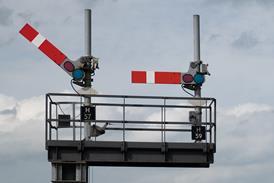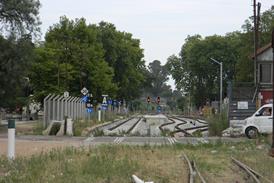WRITING in Companhia Vale do Rio Doce's 2004 annual report, CEO Roger Agnelli states boldly that CVRD 'has been responsible for the rebirth of the Brazilian railroad rolling stock industry'. This remarkable claim warrants further examination.
Anyone attending the eighth International Heavy Haul Association conference in Rio de Janeiro will certainly testify to the rebirth of the Brazilian railway industry. The associated Brazil Rail exhibition was buzzing with activity on many of the 120 stands, and statistics published by the Association of Brazilian Railway Industries, Abifer, reveal a dramatic surge in wagon orders in 2004.
CVRD's rail traffic last year amounted to 28·7 billion net tonne-km, up more than 9% over 2003, helping to give rail a 25% market share of the Brazilian freight business. Investment by railway concessionaires last year amounted to almost R$2bn, and this year the figure will be nearly R$1·7bn, matched by government investment worth nearly R$1·3bn. The National Association of Rail Transporters (ANTF) says that its members have invested over R$6bn since concessioning began eight years ago 'when we did not imagine what we are now experiencing', according to ANTF Executive Director Rodrigo Vilaça. Total investment in the rail sector between now and 2008 is expected to reach R$7·1bn.
It is a tribute to Brazil's railway industry that the government is sharing the investment cost after many years when the rail network appeared forgotten and neglected. The sunrise outlook was confirmed in the opening IHHA session where Afonso Carneiro from the Ministry of Transport described 'a change in the transport matrix' that gives greater emphasis to rail. We understand that 'a major rehabilitation plan for railways' is to be launched shortly.
Back to CVRD's claim. Well, yes, it is undoubtedly correct, but it would not have happened had it not been for the huge demand from China for iron ore.




















